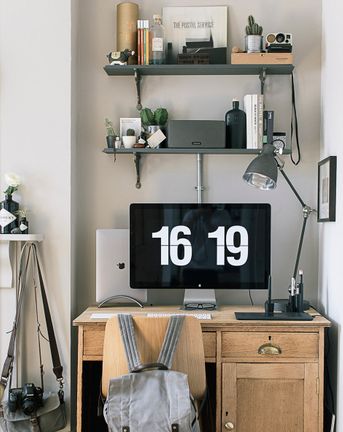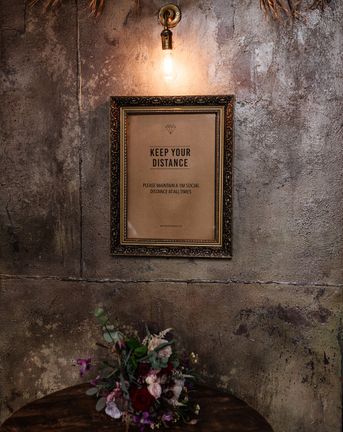Business Hub
Ah, time management. Two words that can either be a blessing, or a real curse. It's also something that most people want to improve on, especially in their working life. Now more than ever, it's so easy to feel distracted at work, making successful time management - well, not very successful. By managing your time well, you're more likely to meet deadlines, improve your efficiency, be more productive in many different avenues, and overall deliver better. Although it may sometimes feel impossible to practice good time management, we assure you - it is. So we thought we'd help out a little bit in the form of some tips and tricks for better time management, so you are well on your way to more productivity and fewer distractions, ultimately resulting in a better business for both you and your customers. So, shall we?
Time management tips and tricks for a better business, and a better you!
Working 9-5
What a way to make a living! Dolly Parton was right on the money in some ways. Having a 9-5 is fairly normal for people in the UK, but that doesn't mean that it's *the norm* for you. First things first, be realistic. Setting doable working hours that work with your life is of the utmost importance. There's no use burning yourself out entirely, just trying to fit into the 9-5 mould. The beauty of having your own business is being able to set your own hours - so don't feel the pressure of having to conform to what a lot of the UK do. There are no rules - if you work better in the evening, have a lie in and do that. If you've got family/other commitments on certain days, work on the other ones. As long as you get the work you need, done, that's all that matters at the end of the day.
However, being your own boss does come at a detriment at times. It means you're technically always contactable, you're always answering DMs, so it can sometimes feel like you're working 364 days a year, 24/7. That's why it's very important to do the following things.
Dedicated days: admin, enquiry
Allocating certain days in your week/month to deal with admin is great. Doing lots of individual tasks throughout the day every day sometimes means you don't actually get through a lot of the stuff you might need to in the time necessary. So admin/enquiry days, where you dedicate a whole day (or two, three, however many you need) a week for solely completing these tasks, you'll most likely get it done quicker and with more efficiency.
Piggybacking off of that, allocating certain days in your week for certain tasks/areas of your work is always a great idea if and where possible. Admin days, finance days, days to answer enquiries, days out shooting, editing days, creative days, etc. Splitting your working week into specific days and tasks means you don't get sidetracked/distracted as quickly, and it means planning for those days becomes easier. And who doesn't want a slightly easier life, hey?
Setting reminders and time limits
It may seem obvious to some, but setting reminders, either on your phone, your laptop or on a sticky note/notepad is a great way to keep on track of the tasks of the day or week. When you've got a million things to do, it's very easy to forget about certain deadlines, no matter how big or small. But either typing out or writing down said deadline not only sets a reminder, but it will stay in your head better throughout the day. Science, baby!
When you've written your list of things to do, write down how much time you think each task will take. If you don't finish the task, stop when the time you allotted finishes, and come back to it later. Sometimes, moving on to different tasks and responsibilities and returning afterwards will give your brain the fresh start and new perspective it needs.
5 Tips To Improve Your Time Management
1. Set reminders for your tasks - on your phone, computer, or on a sticky note!
2. Create a daily planner - having your day written out is a great way to manage your time
3. Give each task a time limit - great for prioritising and ensuring you don't burn out
4. Try to block out distractions where possible - let the things that distract you be a treat for after work
5. Establish routine - who doesn't love a routine?
Out of office replies
An out-of-office message lets you keep people informed when you're not working, and it tells them how and what to do in your absence. This means that nobody will be expecting a response until your return - which is GOOD. You deserve holidays and time away from work/the screen. Having an out-of-office reply just makes the whole process a little more professional. When people are aware of the fact that you are away, they are less likely to send you dozens of emails on the same subject, which means you can return to work with a much less cluttered email inbox. Remember to give specific dates for your absence, and if you can, write someone else's name/email/contact details if it's urgent.
Limit social media usage
It goes without saying that social media can be one of the biggest distractors when it comes to work, especially if you're working from home. By limiting social media usage, you'll become more focused and think more clearly. Of course, this is made a bit more difficult when much of your work is based online/on social media. Now, we're not saying you have to get off the social media grid for good. What we are saying, however, is that in order to limit usage whilst still working, you need to set boundaries. You need to identify what kind of boundaries you want, first and foremost. For example, if you still want to be able to have time to sit and scroll, call this your "play" time. If you need to put aside time for replying to messages, notifications or posting content, think about when and what time of day is best for you. If you're unsure, test various things out. You could call this "work" or "marketing" time.
If you use social media for your business, make sure you have an understanding of the difference between "work" and "play". You can do this by setting more boundaries in the form of times and days. When planning your week, set the days and times in which you use social media for yourself or for your business, including what you want to achieve in this timeframe. Here's a little example:
Monday 10:00 AM-11:00 AM - WORK: Replying to DMs
Monday 3:00PM-4:ooPM - WORK: Content posting
Tuesday 5:00 PM-6:30 PM - PLAY: Catch up with friends, have a scroll, etc.
Setting these boundaries will not only help you better your relationship with social media, but it will also make the lines between your work and your life stronger, which is great for everyone.
Don't apologise for taking days off to recharge
If you take away anything from this article, let it be this. Don't apologise for taking days off to recharge. By taking some time away from your job/screen, you are investing in your physical and mental health in order to build a healthier, more sustainable future. It's easy to fall into the line of thought that more work = more success, so you have to be working all the time to achieve great things work-wise. This, however, is not the case. When you are near to burnout, even the simplest of tasks can feel like a massive burden, increasing the time you spend on them, and the risk of them going awry. And that's not all - burnout is a horrible cycle, that can end up in stress compounding regularly, making you resent your work because you're not enjoying it as much anymore. So, the long and the short of it - take breaks! Take time to do things for yourself, have a walk, read a book, see your friends, and RECHARGE! It'll be better for both you and your business, trust us.
We hope you take all of these into account when trying to manage your time
Managing your time and your work can sometimes feel like an arduous task - we get it. And if you're more of a workaholic kind of person, then fantastic. We're not trying to change that. But just remember that investing time in recharging as well as managing your tasks and limiting social media usage will definitely help you on your way to better time management. Being able to say no is also helpful in terms of managing your working life - and we've got an article all about it on the Business Hub. We've also got an article on how to manage your inbox if you really want to start this year on a productivity high.


 Photography by
Photography by





